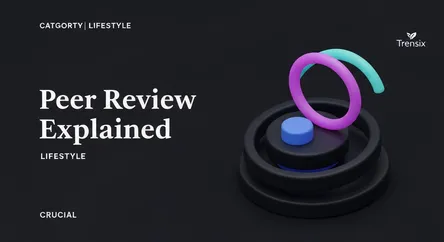Lifestyle
Peer Review Explained

Discover the essential process of peer review, where experts evaluate scholarly work to ensure quality and credibility in academic and professional fields.
What is it?
Peer review is a collaborative process of evaluation where work is scrutinized by individuals with similar expertise within the same field. Primarily used in academia and scientific research, its purpose is to ensure the quality, validity, and originality of published work before it is released. Peers assess manuscripts for methodological rigor, accuracy, and contribution to the field, providing feedback for improvement or recommending acceptance or rejection. This system acts as a crucial gatekeeper, upholding the standards and integrity of scholarly communication by filtering out flawed or unsubstantiated research.
Why is it trending?
Beyond its traditional academic setting, the principles of peer review are gaining traction in various sectors. In education, peer feedback is increasingly used in classrooms to help students develop critical thinking and communication skills. In the corporate world, it's applied in project management and performance reviews to foster collaboration and improve outcomes. The rise of open science and digital platforms has also sparked discussions about new models, like open peer review, making the process more transparent and a topic of broader public interest.
How does it affect people?
Peer review directly impacts researchers, students, and professionals. For academics, it is the cornerstone of career progression, determining publication, grants, and tenure. For students, engaging in peer review enhances their learning, teaching them to give and receive constructive criticism. For the general public, it builds trust in scientific findings and expert knowledge, influencing everything from public health policies to technological advancements. It ensures that the information we rely on has been vetted for quality and credibility by a community of experts.